
Agenda and Videos
Legal & Policy Pathways for Energy Innovation
8:30–9am
Registration & Breakfast
9–9:15am
Welcome & Opening Remarks
• David Wippman, Dean, University of Minnesota Law School
• Hari Osofsky, Associate Professor, University of Minnesota Law School; Interim Director, Consortium on Law and Values in Health, Environment & the Life Sciences
9:15–10am
View video
Opening Keynote
• Michael Gerrard, Andrew Sabin Professor of Professional Practice and Director of the Center for Climate Change Law, Columbia Law School; Senior Counsel, Arnold & Porter Law Firm
Confronting the Tradeoffs in the Energy Transition
10–10:15am
Coffee & Networking
10:15–11:30am
View video
Panel on the Electricity Grid, Public Utility Commissions, and Energy Transition
• Joel Eisen, Professor, University of Richmond School of Law
Evolving Notions of Federalism in the Smart Grid
• Paulina Jaramillo, Assistant Research Professor, Carnegie Mellon University Department of Engineering and Public Policy
Integrating Solar and Wind Energy
• Michael Wara, Associate Professor, Stanford Law School
Electric Cars and Regulation of the Utility-Ratepayer Interface
Moderator: S. Massoud Amin, Professor of Electrical and Computer Engineering, Honeywell/H.W. Sweatt Chair in Technological Leadership, and Director of the Technological Leadership Institute (TLI), University of Minnesota
View video
Panel on Pollution and Justice Concerns Raised by Fossil Fuels and by the Shift to Cleaner Sources
• Rebecca Bratspies, Professor, CUNY School of Law & Henry Tranes, CUNY School of Law
Sharing the Burdens of Pollution in New York: Whose Environment Are We Protecting, and Who Decides?
• Erin Ryan, Associate Professor, Lewis and Clark Law School
Breathing Air with Heft: Coal, Cars, and the Staggering Problem of Air Pollution in China
• Deborah Behles, Associate Professor, Golden Gate University School of Law
Environmental Justice Considerations Related to Renewable Energy Development in California
Moderator: Stephen F. Befort, Gray, Plant, Mooty, Mooty, & Bennett Professor of Law and Associate Dean for Research & Planning, University of Minnesota Law School
11:45am–1pm
View video
Panel on the Role of Greenhouse Gas Emissions Trading in a Cleaner Energy Future
• David Adelman, Harry Reasoner Regents Chair in Law, University of Texas School of Law
Greenhouse Gas Trading and Hotspots
• William C.G. Burns, Director, MS in Energy Policy and Climate Program, Johns Hopkins University (via Skype)
How to Strengthen the European Union’s Emissions Trading Scheme to Enhance the Prospects for a Clean Energy Economy
• Jacqueline Peel, Professor, University of Melbourne Law School
The Australian Carbon Pricing Mechanism: Promise and Pitfalls on the Pathway to a Clean Energy Future
Moderator: Sharon Reich Paulsen, Associate Dean, University of Minnesota Law School
View video
Panel on Renewable Energy Development and Endangered Species
• Jessie Owley, Associate Professor, SUNY Buffalo Law School & Amy Morris, Associate Environmental Scientist, Aspen Environmental Group
Mitigating the Impacts of the Renewable Energy Gold Rush
• Kalyani Robbins, Associate Professor, University of Akron School of Law
Responsible, Renewable, and Redesigned: How the Renewable Energy Movement can make Peace with the Endangered Species Act
• Jeffrey Thaler, Visiting Professor, University of Maine School of Law
Are Our Environmental Laws Obsolete or Unhelpful in our Climate Changed World?
Moderator: Shelley Saxer, Professor, Pepperdine University School of Law
1–2pm
Informal Networking & Mentoring Lunch
2–3:30pm
View video
Panel on Mechanisms, Barriers, and Possibilities for Renewable Energy Development
• Alexandra Klass, Professor, University of Minnesota
Tax Benefits, Property Rights, and Mandates: Considering the Future of Government Support for Renewable Energy
• Elizabeth Kronk, Associate Professor of Law and Director, Tribal Law & Government Center, University of Kansas School of Law (via Skype)
Renewable Energy on Tribal Lands
• Felix Mormann, Associate Professor of Law, University of Miami School of Law
Smarter Tax Policy for a Cleaner, More Democratic Energy Future
Energy Federalism Panel
• Gabriel Pacyniak, Institute Associate, Georgetown Climate Center, Adjunct Professor, Georgetown Law
Building on State Climate and Energy Programs Under Clean Air Act §111 (d)
Moderator: Scott Strand, Executive Director, Minnesota Center for Environmental Advocacy
View video
Panel on Climate Change Mitigation, Adaptation, and Justice
• David Dana, Professor, Northwestern University School of Law
A Mitigation Principle for Adaptation
• Katherine Trisolini, Associate Professor, Loyola Law School
Holistic Climate Change Governance: Towards Adaptation and Mitigation Synthesis
• Maria Savasta-Kennedy, Clinical Professor, University of North Carolina School of Law
Learning from Our Mistakes; Why We Can't Ignore the Side Effects of Our
Climate Change Policy Decisions on the World's Energy Poor and Vulnerable
Populations
• Gregor Wolbring, Associate Professor Community Rehabilitation and Disability Studies, Dept. of Community Health Sciences, Faculty of Medicine, University of Calgary & Jacqueline Noga, University of Calgary (via Skype)
Analysis of Climate, Energy, and Environmental Justice: Introducing Eco-ableism as a Conceptual Framework
Moderator: Sara Peterson, Owner, Parkway Law, LLC
3:30–4pm
Coffee & Networking Break
4–5:30pm
View video
Panel on Fostering Solar Energy Development and Integration
• K.K. Duvivier, Professor, University of Denver Sturm College of Law
Problems with Protecting the Right to Distributed Solar Power
• Maria A. Petrova, Center for International Environment and Resource Policy, Tufts University
Sustainable Communities and Wind Energy Project Acceptance in Massachusetts
• Troy Rule, Associate Professor, University of Missouri School of Law
Of Sunlight and Subdivisions: The Case for Collective Solar Energy and How to Pay for It
• Beth Mercer-Taylor, Sustainability Education Coordinator, University of Minnesota
Renewable Energy Becomes Culture: A Solar Story
Moderator: Steve Kelley, Senior Fellow, Center for Science, Technology and Public Policy and Deputy Director, Center for Integrative Leadership, Humphrey School of Public Affairs
View video
Panel on Re-Envisioning Energy Governance Approaches
• William Buzbee, Professor, Emory University School of Law
Energy Versus the Environment: Regulatory Goals, Tools, and Federalism Choices Compared
• Uma Outka, Associate Professor, University of Kansas School of Law
The Shift Away from Coal: Energy Governance Diversity and Innovation
• Hari Osofsky, Associate Professor, University of Minnesota Law School
Hybrid Energy Governance
• Rachael Shwom, Assistant Professor, Rutgers University School of Environmental and Biological Sciences
Learning from Energy Efficiency: Coordinating Regulatory and Non-Regulatory Approaches for Advancing Technology Innovation Goals
Moderator: Rolf Nordstrom, Executive Director, Great Plains Institute
7:30–9:30pm
Dinner for Speakers
Spoonriver Restaurant, 750 S. 2nd St., Minneapolis, MN, 55401
This restaurant, which is committed to local, organic, sustainable food, is easy walking distance from the conference hotel.
Thursday, April 25, 2013
8:30–9am
Breakfast
9–10:30am
View video
Plenary Panel on the Shale Gas Production and the Complexities of Regulating Hydraulic Fracturing
• Shalanda Baker, Associate Professor, University of San Francisco School of Law
Is Fracking the New Financial Crisis? Exploring Hybridity and Risk in Energy Development
• Josh Fershee, Professor, West Virginia University College of Law
The Role of Natural Gas in a Clean(er) Energy Future
• David Spence, Professor, University of Texas School of Law
Policymaking Under Conditions of Conflict and Uncertainty: Regulating Shale Gas Production
• Hannah Wiseman, Assistant Professor, Florida State University College of Law
Remedying Regulatory Diseconomies of Scale in Energy Law
Moderator: Bradley C. Karkkainen, Henry J. Fletcher Professor in Law, University of Minnesota Law School
10:30–10:45am
Coffee & Networking
10:45am–12pm
View video
Panel on Transitioning Energy Sources
• Jody Endres, Assistant Professor, University of Illinois at Urbana-Champaign College of Agricultural Consumer and Environmental Sciences
Bioenergy Policy and the Transformation to a Green Economy: The Urgent Case for Metrics
• Andrew Long, Associate Professor, Florida Coastal School of Law
Governance at the Energy-Environment Nexus: Developing Linkages Among Governments and Issues for a Twenty-first Century Regulatory Challenge
• Amy Stein, Associate Professor, Tulane University Law School
Breaking Path Dependency of Fossil Fuel Infrastructure
Moderator: R. Lee Penn, Associate Professor of Chemistry, McKnight Presidential Fellow, University of Minnesota
View video
Panel on the Possibilities and Limits of Market Mechanisms
• Alice Kaswan, Professor, University of San Francisco School of Law
Climate Change, the Clean Air Act, and Industrial Pollution: Traditional versus Market-Based Regulation
• Sarah Light, Visiting Assistant Professor, Brooklyn Law School
Interagency Cap and Trade
• Endre Stavang, Professor, University of Oslo Faculty of Law
The Environmental Option
Moderator: Winthrop A. Rockwell, Partner, Faegre Baker Daniels LLP
12:30–1:30pm
View video
Lunch Keynote
• Ellen Anderson, Senior Adviser on Energy and Environmental Issues to Minnesota Governor Mark Dayton, Former Minnesota State Senator
Energy Transformation: Drivers of Change, Barriers to Change
1:45–3pm
View video
Panel on the Complexities of Wind Integration
• Mark Ahlstrom, CEO, WindLogics, St Paul MN
Wind Energy in Markets—Making Wind Dispatchable
• Matt Schuerger, President, Energy Systems Consulting Services, Minneapolis MN
Wind Integration Technical Challenges & Best Practices
• Beth Soholt, Executive Director, Wind on the Wires, St Paul MN
Policy Drivers and Legal Aspects of Wind Energy and Integration
Moderator: Elizabeth Wilson, Associate Professor, University of Minnesota Humphrey School of Public Affairs
Panel on Constitutional Federalism Concerns, Governance, and Energy Transition
• James Coleman, Climenko Fellow and Lecturer on Law, Harvard Law School
Importing Energy, Exporting Regulation: Reconciling State Policy Innovation with National Energy Markets
• Steve Ferrey, Professor, Suffolk University Law School
The Fifth Dimension: Legal Infrastructure, Cracks and Governance
• Lewis Gilbert, Managing Director / Chief Operating Officer, Institute on the Environment, University of Minnesota
Governing from Within the Earth System: Concerns Regarding Rationality and Intentionality
Moderator: Judge David Minge, Minnesota Court of Appeals (Retired)
3–3:15pm
Coffee & Networking
3:15–4:45pm
View video
Closing Plenary Panel on Achieving Sustainable Communities
Closing Remarks
• Brian Herman, Vice President for Research, University of Minnesota
Plenary Panel
• Reid Ewing, Professor and Director of the Metropolitan Research Center, University of Utah
Sprawl and Travel
• Jim Smith, John Byrd Martin Chair of Law, University of Georgia School of Law
The Green Home Movement: How Should We Define and Regulate “Green Homes,” Encourage Their Production, and Protect Purchasers and Residents?
• Lisa Sun, Associate University, Brigham Young University Law School
Disaster Justice in Cities and Urban Renewal Projects
Moderator: Peter Lindstrom, Mayor, Falcon Heights and Assistant Director, Center for Science, Technology, and Public Policy, University of Minnesota Humphrey School of Public Affairs
Speakers and Panelists
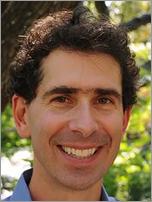
David E. Adelman, JD, PhD, holds the Harry Reasoner Regents Chair in Law at the University of Texas Law School. He teaches and writes in the areas of environmental law, intellectual property law, and climate change policy. Prof. Adelman’s research focuses on the many interfaces between law and science. Prof. Adelman clerked for the Honorable Samuel Conti of the United States District Court for the Northern District of California. Before entering academia, he was an associate with the law firm Covington & Burling in Washington, D.C., where he litigated patent disputes and provided counsel on environmental regulatory matters, and a Senior Attorney with the Natural Resources Defense Council also in Washington, D.C. Professor Adelman was an Associate Professor of Law at the University of Arizona Rogers College of Law from 2001 to 2009.
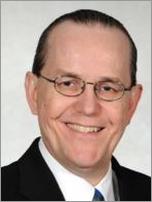
Mark Ahlstrom, MS, has been the CEO of WindLogics since December of 2000. Under his leadership, the company became an authority in the assessment, forecasting, operations and integration of renewable energy. WindLogics became a subsidiary of NextEra Energy Resources (formerly FPL Energy) in 2006, allowing it to expand its role as an applied R&D center and provider of services to utility, wind and solar energy clients. Prior to joining WindLogics, Mark was founder of two software technology companies. He holds degrees in Biochemistry and Biomedical Engineering from the University of Wisconsin-Madison.

Ellen Anderson, JD, serves as enior advisor on energy and environment to Governor Mark Dayton, and works at the Minnesota Department of Agriculture. Ellen led the implementation of the state's Environmental Quality Board (EQB), and her duties included organizing the Minnesota Environmental Congress and issuing Minnesota’s Environment and Energy Report Card. She continues to assist the EQB with energy and environmental issues. Ellen holds a BA from Carleton College and JD cum laude from the University of Minnesota Law School.
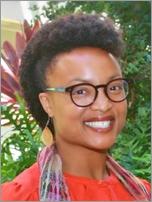
Prof. Shalanda H. Baker, JD, LLM, teaches Corporate Law and courses in International Development and International Economic Law. Her research explores issues at the intersection of large energy and infrastructure project development; indigenous rights; and the environment. She served as an Air Force officer prior to her honorable discharge under the “Don't Ask, Don't Tell” policy, and became a vocal advocate for repeal of the policy. Following her graduation from law school, Baker clerked for Justice Roderick Ireland of the Massachusetts Supreme Judicial Court. She also worked as a corporate and project finance associate for Bingham McCutchen LLP, initially in Boston and later in Japan. Baker recently completed a William H. Hastie Fellowship at the University of Wisconsin Law School, where she received her LLM degree.

Prof. Deborah Behles, JD, teaches and is a Staff Attorney at the Environmental Law and Justice Clinic at Golden Gate University School of Law. At the clinic, she leads efforts on complex regulatory and energy cases that examine long-term energy policy for the State of California. Before teaching, she was a trial attorney at the Department of Justice's Environmental Enforcement Section where she litigated civil environmental cases. She is a graduate of University of Minnesota Law School.
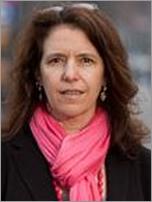
Rebecca Bratspies, JD, is a Professor of Law at the CUNY School of Law and the founding director of the CUNY Center for Urban Environmental Reform. She is a scholar with the Center for Progressive Reform; the Environmental Law Collective; and has served as an appointed member of the American Bar Association Standing Committee on Environmental Law; is a member of the Executive Committee of the American Association of Law Schools Section on the Environment; and an advisor to the Consultative Group on Agricultural Research. Before entering academia, Prof. Bratspies served as a judicial law clerk to the Honorable C. Arlen Beam of the Eighth Circuit Court of Appeals. As a Henry Luce Foundation Scholar, she spent a year seconded to the Republic of China (Taiwan) Environmental Protection Administration. Prof. Bratspies has taught at the University of Idaho, Michigan State University and NYU.
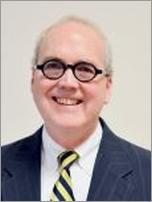
William C.G. Burns, PhD, is Director of the Energy Policy & Climate program at Johns Hopkins University. Previously he was a Senior Fellow at the Center for Global Law & Policy at Santa Clara University School of Law and served as the Editor in Chief of the Journal of International Wildlife Law & Policy and as Co-Chair of the American Society of International Law's International Environmental Law Interest Group. His research interests include the impacts of climate change on species; the potential use of litigation at the national and international levels as a mechanism to address climate change; the effectiveness of international wildlife treaty regimes (with an emphasis on whale management and conservation regimes); and the development of protocols to operationalize the precautionary principle in multilateral environmental agreements. Prior to beginning his academic career, he worked more than twenty years in the NGO and government sectors. He holds a Ph.D. in International Environmental Law from the Cardiff Law School at the University of Wales.
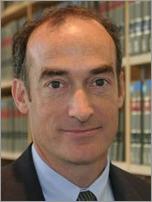
William W. Buzbee, JD, is a Professor of Law, Director of the Environmental and Natural Resources Law Program, and a Director of the Center on Federalism and Intersystemic Governance, all at Emory University. He also assisted in the design and launch of Emory's Turner Environmental Law Clinic and currently chairs its advisory board. An expert on environmental, administrative and other public law issues, Buzbee's most recent publications focus on regulatory federalism and design. He is the editor and contributor to "Preemption Choice: The Theory, Law and Reality of Federalism's Core Question" (2009, Cambridge University Press). He is a founding member scholar of the Center for Progressive Reform, a Washington D.C.-based regulatory think tank.
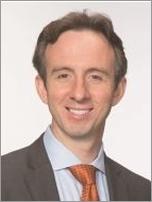
James Coleman, JD, is a Climenko Fellow at Harvard Law School. His scholarship addresses North American environmental and energy regulation, with a special focus on jurisdictional issues that arise in interstate and international energy markets. He received his undergraduate degree in Biology from Harvard University, magna cum laude, with highest honors in field. After receiving his JD from Harvard Law School, cum laude, he clerked for the Honorable Steven M. Colloton of the U.S. Court of Appeals for the Eighth Circuit. James also practiced as an environmental and appellate associate at Sidley Austin LLP, where he focused on climate change litigation, regulation, and policy.
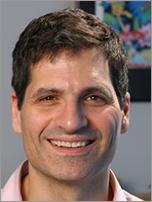
David Dana, JD, is Kirkland & Ellis Professor of Law at Northwestern University. He is a leading scholar in the fields of environmental law, property, land use, and professional responsibility. Before becoming a professor, he was a litigator in both the private (Wilmer, Cutler & Pickering) and public (U.S. Department of Justice) sectors. He taught at Boston University before joining Northwestern, and has been a visiting professor at Harvard and Virginia as well several foreign universities. His work on the Takings Clause has been widely cited, as has his writing on the ethics of aggregate legal representation. Prof. Dana's current scholarly work focuses on a range of topics, including environmental and health risks posed by emerging technologies, climate change adaptation, the foreclosure crisis, and attorney fees and fee alternatives.
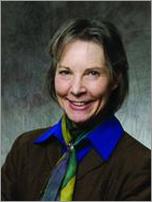
Prof. K.K. DuVivier, JD, has taught full-time at the law school level since 1990, including ten years at the University of Colorado School of Law before joining the Denver Law faculty in 2000. Her book, "The Renewable Energy Reader," was published by Carolina Academic Press in 2011. Prof. DuVivier has been a member of the American Law Institute since 2006, and she is currently chair-elect of the American Association of Law Schools Section on Natural Resources and Energy Law. She lives within walking distance from work in a near-net-zero home, which won the Colorado Renewable Energy Society’s award for Renewable Energy and Sustainable Design in Buildings – Single Family in 2012. She has presented at several national conferences and has over 100 publications in state bar journals and national law reviews.
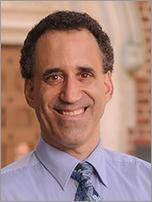
Prof. Joel Eisen, JD (University of Richmond) teaches and writes in the areas of energy law and policy, environmental law and policy, climate change, and the Smart Grid. He is a co-author of the leading law and business school text on energy law, "Energy, Economics and the Environment" and numerous books, book chapters, treatises, and law review articles on electric utility regulation, renewable energy, and brownfields law and policy. His scholarship has appeared in journals at Harvard, Duke, Notre Dame, Fordham, Illinois, Wake Forest, and William & Mary law schools, among other venues. In recognition of his contributions to scholarship, Richmond Law named him the inaugural Austin Owen Research Fellow in 2013. His article, "Residential Renewable Energy: By Whom?", was honored as one of the top four environmental law articles of 2011 by the Environmental Law Institute and Vanderbilt Law School. He was the University of Richmond’s Distinguished Educator for 2010-11, and in spring 2009, a Fulbright Professor of Law at the China University of Political Science and Law in Beijing, China.

Jody Endres, JD, is an Assistant Professor of Law in the Department of Natural Resources and Environmental Sciences (NRES) at the University of Illinois at Urbana-Champaign, and an affiliate at the University’s Energy Biosciences Institute (EBI). She received her JD from the University of Illinois College of Law in 2000. Her research focuses on the nexus between agricultural, environmental and energy policies in forming sustainable energy alternatives. Her papers have examined various facets of sustainability policy, including operationalizing sustainability standards from technology and legitimacy perspectives, land use classifications, sustainable contracting theories, the role of law in bioenergy modeling, and whether existing forestry regulations can protect forests in an era of increasing demand from bioenergy. Her current work applies institutional and comparative approaches to building sustainability legal regimes in Brazilian agricultural landscapes, and develops green development metrics that integrate accounting of economic, environmental and social benefits.
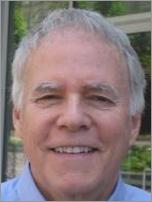
Reid Ewing, PhD, is a Professor of City and Metropolitan Planning at the University of Utah, associate editor of the Journal of the American Planning Association, and columnist for Planning magazine, writing the bi-monthly column Research You Can Use. Earlier in his career, he was director of the Voorhees Transportation Center at Rutgers University, research professor at the National Center for Smart Growth, state representative from northwest Tucson, and analyst at the Congressional Budget Office. He holds master’s degrees in Engineering and City Planning from Harvard University, and a Ph.D. in Urban Planning and Transportation Systems from the Massachusetts Institute of Technology. Ewing's work is aimed at planning practitioners; his eight books include "Pedestrian and Transit Oriented Design," "Growing Cooler – Evidence on Urban Development and Climate Change," and Best Development Practices, listed by the American Planning Association (APA) as one of the 100 “essential” books in planning over the past 100 years. His 90 peer reviewed articles include "Travel and the Built Environment: A Meta-Analysis," given the 2010 Best Article of the Year award by APA and “Is Los Angeles-Style Sprawl Desirable?” listed by APA as a Classic Article in urban planning.
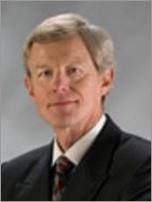
Prof. Steven Ferrey, JD, teaches at Suffolk University Law School in Boston, and has served as Visiting Professor at Harvard Law School and Boston University Law School. Since 1993, he has served as a primary legal advisor to the World Bank and the United Nations on renewable energy and climate change projects in several developing countries in Asia, Africa, and elsewhere. He is the author of 7 books and 100 articles on environmental and energy law and regulatory topics. His books include the 3-volume "Law of Independent Power," now in its 30th edition, 2013; "Environmental Law: Examples & Explanations," 6th ed. 2013; "Renewable Power in Developing Countries," (2006); and "Unlocking the Global Warming Toolbox" (2010). His articles on energy have recently appeared in law reviews at Harvard, Duke, University of Virginia, George Washington, Georgetown, Fordham, Univ. of Virginia, Univ. of Minnesota, William and Mary, Boston College, NYU, University of California at Berkeley, Notre Dame, Univ. of Texas, UCLA and Stanford.
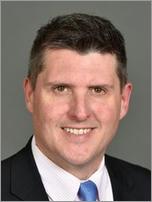
Prof. Joshua P. Fershee, JD, teaches at the West Virginia University College of Law and is part of the Center for Energy and Sustainable Development where he focuses his research and teaching in the areas of energy law and policy, business law, and corporate governance. Before joining WVU, he served as Associate Professor and Associate Dean for Academic Affairs and Research at the University of North Dakota School of Law. Professor Fershee's wide-ranging research publications discuss hydraulic fracturing for oil and gas, renewable energy programs in the transportation and electricity sectors, climate policy, geothermal energy, environmental enforcement, and corporate governance and ethics. His most recent projects have focused on the economic, environmental, and social issues and opportunities arising from the increased use of hydraulic fracturing for oil and gas and have considered the role of shale oil and gas in the broader U.S. and global energy mix.
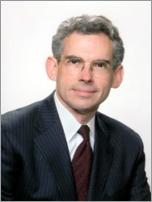
Michael Gerrard, JD, is Andrew Sabin Professor of Professional Practice and Director of the Center for Climate Change Law, Columbia Law School. Before joining the Columbia faculty in January 2009, he was partner in charge of the 110-lawyer New York office of Arnold & Porter LLP; he is now Senior Counsel to the firm. He practiced environmental law in New York City full time from 1979 to 2008 and tried numerous cases and argued many appeals in federal and state courts and administrative tribunals. He was the 2004-05 chair of the American Bar Association’s 10,000-member Section of Environment, Energy and Resources. He has also chaired the Executive Committee of the New York City Bar Association, and the Environmental Law Section of the New York State Bar Association. He is currently a member of the executive committees of the boards of the Environmental Law Institute and the American College of Environmental Lawyers.
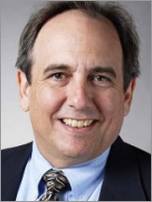
Lewis E. Gilbert, PhD, is Managing Director and Chief Operating Officer with the Institute on the Environment (IonE) at the University of Minnesota. He represents the Institute at senior levels in University governance and to the public. Gilbert is responsible for inspiring collaboration among existing IonE programs and creating new endeavors that advance the Institute’s mission. He also oversees the operational aspects of IonE’s facilitator role across the whole of the University of Minnesota. Gilbert’s career as an academic entrepreneur has focused on the design, implementation and management of complex interdisciplinary activities in large research universities. He was a key architect in the creation of the Earth Institute at Columbia University and a central figure in the revitalization of the Nelson Institute at the University of Wisconsin-Madison. Among the major activities he has worked on are: creation of the International Research Institute for climate prediction, integration of CIESIN into the Earth Institute, creation of the Wisconsin Initiative on Climate Change Impacts, and evolution of the Wildlife Data Integration Network. He has also served as a consultant to Arizona State University, CINCS LLC and the Twycross Zoo. His courses and lectures focus on the human role in the evolution of Earth and on the inherent complexity of natural and human systems.

Brian Herman, PhD, was appointed vice president for research at the University of Minnesota on January 1, 2013. He is responsible for the oversight and administration of an externally funded research program of more than $800 million, which encompasses all five campuses in the U of M system. Herman received his undergraduate degree in biology from Adelphi University. He received his doctorate from the University of Connecticut Health Science Center and undertook postgraduate training at Harvard Medical School. Following the completion of his postgraduate training, he joined the faculty at the University of North Carolina at Chapel Hill School of Medicine. He assumed the position of professor and chair of the Department of Cellular and Structural Biology at the University of Texas Health Science Center at San Antonio (UTHSCSA) in June 1998. He served in this capacity until October 2004, when he assumed the position of vice president for research at the UTHSCSA.
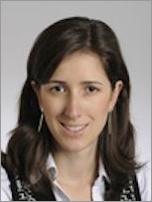
Prof. Paulina Jaramillo, PhD, is originally from Medellin, Colombia. She has a bachelor’s in Civil and Environmental Engineering from Florida International University (2003), as well as a master's and PhD in Civil and Environmental Engineering with an emphasis in green design from Carnegie Mellon University (2004 and 2007, respectively). Her past research focused on life cycle assessment of energy systems with an emphasis on climate change impacts and mitigation research. As a Professor at Carnegie Mellon University, she is currently involved in key multi-disciplinary research projects to better understand the social, economic, and environmental implications of policy-driven changes in the operation of the energy system. She is also the Executive Director of the RenewElec project, which is looking at challenges and opportunities for the large-scale integration of variable and intermittent renewable resources into the U.S. power system.
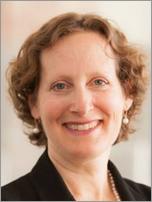
Alice Kaswan, JD, is Professor and Dean's Circle Scholar at the University of San Francisco School of Law. She has written and spoken widely about the intersection between environmental justice and climate change policy, with special emphasis on the environmental justice implications of cap-and-trade programs for greenhouse gases. She has also written extensively on climate federalism, addressing the appropriate roles of federal, state, and local governments in mitigating climate change, and adapting to its inevitable consequences. Kaswan is a member of the American Law Institute, a member scholar of the Center for Progressive Reform, and serves on the Association of American Law Schools’ Environmental Law Section Executive Committee. She is a graduate of Harvard Law School and the University of California, Berkeley.
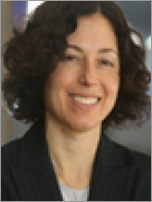
Prof. Alexandra B. Klass, JD, is the Julius E. Davis Professor of Law at the University of Minnesota Law School. She teaches and writes in the areas of Environmental Law, Energy Law, Natural Resources Law, Tort Law, and Property Law. Her recent scholarly work includes regulatory challenges to integrating more renewable energy into the nation’s electric transmission grid, federal financial support for renewable energy development, eminent domain issues surrounding interstate transmission lines, and the legal issues associated with using carbon capture and sequestration technology to limit greenhouse gas emissions from coal-fired power plants. She is a co-author of an Environmental Law textbook and a forthcoming Energy Law textbook. Prior to her teaching career, Professor Klass was a partner at Dorsey & Whitney LLP in Minneapolis, where she specialized in environmental law and land use litigation.

Prof. Elizabeth Kronk, JD, teaches Property, Federal Indian Law, Native American Natural Resources, and Tribal Law at the University of Kansas School of Law and directs the Tribal Law and Government Center. Prior to her arrival at Kansas, Kronk served on the law faculties at Texas Tech University and the University of Montana. In 2010, Kronk was selected to serve as an Environmental Justice Young Fellow through the Woodrow Wilson International Center for Scholars and U.S.-China Partnership for Environmental Law at Vermont Law School. Professor Kronk's scholarship examines the intersection of environmental and natural resources law and Indian law, most recently focusing on the impacts of climate change on indigenous peoples and energy development in Indian country. In 2013, she served as a co-editor and author for "Climate Change and Indigenous Peoples: The Search for Legal Remedies." She also is an author of "Native American Natural Resources" (2013). In addition to teaching, Kronk serves as an appellate judge for the Sault Ste. Marie Tribe of Chippewa Indians Court of Appeals in Michigan. Before entering academia, Kronk practiced environmental, Indian, and energy law as an associate in the Washington, D.C., offices of Latham & Watkins LLP and Troutman Sanders LLP.
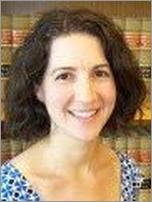
Sarah Light, JD, is Visiting Assistant Professor at Brookly Law School. Prior to that, Light served for ten years as an Assistant United States Attorney for the Southern District of New York, Civil Division, and for four years as the Chief of the Office’s Environmental Protection Unit. In that capacity, Light represented federal agencies, including the Environmental Protection Agency, the Department of Defense, the U.S. Army Corps of Engineers, and others in affirmative, defensive and bankruptcy litigation. While serving as an AUSA, Light taught Environmental Law and Policy at the Earth Institute at Columbia University, and served as a pro bono mediator in the United States District Court for the Southern District of New York. She has also previously taught at Fordham Law School and Brooklyn Law School. Light’s scholarly articles have appeared in the Yale Law Journal, the Tulane Law Review, and forthcoming works will be published in the U.C.L.A. Law Review and the Boston College Law Review. Light earned her J.D. from Yale Law School, an M. Phil in Politics from Oxford University where she was a Rhodes Scholar, and an A.B. in Social Studies magna cum laude from Harvard College.
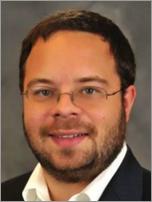
Prof. Andrew Long, JD, LLM, teaches at the Florida Coastal School of Law. Prior to joining their faculty in 2008, Prof. Long was a visiting professor at the University of Louisville's Louis D. Brandeis School of Law, served as a Senior Court Attorney with the New York Court of Appeals and practiced in Oregon. Long received his LLM from New York University School of Law, where he served as an advisor to the NYU Environmental Law Journal, and his JD from Willamette University College of Law, where he served on the Law Review. Prof. Long teaches property and environmental law courses. He researches primarily in the areas of biodiversity and climate change. His work has appeared in the Carbon & Climate Law Review, Columbia Journal of Environmental Law, the New York University Environmental Law Journal and other journals.
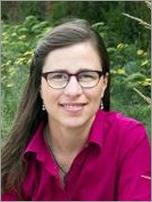
Beth Mercer-Taylor, JD, MPP, is the Sustainability Education Coordinator at the University of Minnesota's Institute on the Environment (IonE). She administers the Sustainability Studies Minor, an interdisciplinary, free-standing program with nearly 200 undergraduates enrolled. Her work involves recruiting and advising students, creating community-building activities, coordinating the efforts of the Curriculum Committee (30 faculty members) that oversees the Minor’s academic program and leading new initiatives relating to sustainability on campus. In addition to her University position, Beth serves as a Councilmember in the City of Falcon Heights, Minnesota, previously served as a Planning Commissioner and participates in numerous civic and political organizations. She has practiced commercial real estate and public finance law in Minneapolis and worked as a land use planner and consultant in Berkeley, California.
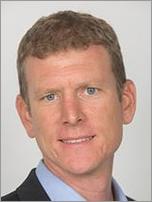
Prof. Felix Mormann, JD, LLM, JSD, teaches at the University of Miami School of Law. Previously, Mormann was Lecturer in Law and Energy Policy and Finance Fellow at Stanford Law School and a Visiting Scholar at UC Berkeley School of Law. Professor Mormann's scholarly interests lie at the intersection of law and innovation in the context of environmental and energy law and policy. His recent publications include "Enhancing the Investor Appeal of Renewable Energy" (2012) and "Requirements for a Renewables Revolution" (2011). Professor Mormann is admitted to the practice of law in Germany and New York. His professional experience includes management consulting for international high-tech clients, clerking for the Hanseatic Court of Appeals in Hamburg and the German Embassy in Buenos Aires, and practicing as a corporate and energy attorney.
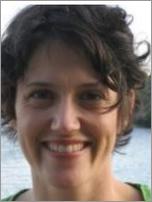
Amy Morris, PhD, is currently pursuing research that addresses offsite endangered species mitigation for large-scale solar projects and policy barriers to appropriate siting of renewable energy facilities. She has a PhD in Environmental Studies from University of California Santa Cruz, where she wrote her dissertation on conservation easement oversight policies and public access to information about private land conservation. Currently, at Aspen Environmental Group, Amy serves as a policy and technical expert and project manager for CEQA/NEPA analysis. At Aspen, Amy has worked on major solar projects, a passenger rail project, and the Desert Renewable Energy Conservation Plan.
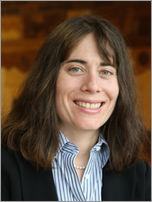
Prof. Hari Osofsky, JD, PhD, is Interim Director for the Joint Degree Program and the Consortium on Law and Values in Health, Environment & the Life Sciences. In summer 2010, she became an Associate Professor with tenure at the University of Minnesota Law School and the Associate Director of Law, Geography & Environment of the University of Minnesota's Consortium on Law and Values. She received her BA and JD from Yale University. She also is a PhD student in the Department of Geography at the University of Oregon. Professor Osofsky's scholarship brings an interdisciplinary law and geography perspective to climate change governance questions.
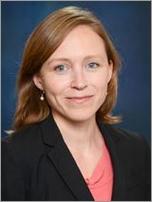
Prof. Uma Outka, JD, teaches Energy Law, Environmental Law and related courses at the University of Kansas School of Law and is an affiliate faculty member in the KU Environmental Studies Program and Center for Environmental Policy. Her research interests center on the transition to a cleaner energy sector, with a focus on the legal context for renewable energy development and environmental impacts of energy production. Prior to joining KU, Outka spent two years as a Visiting Scholar in Energy and Land Use Law at Florida State University College of Law and faculty research partner with FSU's interdisciplinary Institute for Energy Systems, Economics and Sustainability (IESES). Outka is a Member Scholar with the Center for Progressive Reform and a Vice-chair for the Infrastructure and Siting Committee of the American Bar Association Section on Environment, Energy and Resources. Before entering academia, Outka served as General Counsel for 1000 Friends of Florida, a non-profit advocacy organization focused on growth management, environmental conservation and affordable housing, and worked as an attorney in general litigation with the Northeast law firm, Verrill Dana LLP in Portland, Maine.
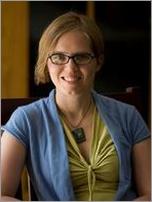
Prof. Jessica Owley, JD, PhD, teaches Environmental Law, Property, and Land Conservation. She joined the SUNY Buffalo Law faculty in 2010 after serving as an Assistant Professor at Pace Law School. She received her PhD in Environmental Science, Policy and Management from the University of California-Berkeley in 2005, shortly after completing her JD at Berkeley Law in 2004. Before entering academia, Owley practiced in the Land Use and Environment Law group at Morrison & Foerster in San Francisco. Prior to private practice, Owley clerked for Hon. Harry Pregerson of the Ninth Circuit Court of Appeals and Hon. Dean D. Pregerson of the Central District of California. Owley is a member of the California bar and admitted to practice in the Northern, Southern and Eastern districts of California and the Ninth Circuit.
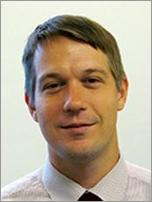
Gabe Pacyniak, JD, is an Institute Associate at the Georgetown Climate Center and Adjunct Professor at Georgetown Law. At the Climate Center he works with states on power sector and transportation sector emission-reduction strategies, analyzes state-federal aspects of greenhouse gas and transportation legislation and regulations, and helps facilitate the Transportation and Climate Initiative. He also co-teaches a climate change experiential learning seminar with Georgetown Climate Center Executive Director Vicki Arroyo. Gabe is a graduate of Georgetown Law, where he earned a JD cum laude. While in law school, he interned at the White House Office of Energy and Climate Change and on the environmental staff of the US House of Representatives Energy and Commerce Committee while the committee was drafting the American Clean Energy and Security Act. Prior to entering law school, Gabe was a metro reporter and editor in Washington, DC. He also holds a BA from the New College of Florida with a concentration in philosophy.

Prof. Jacqueline Peel of the Melbourne Law School, Australia holds the degrees of Bachelor of Science and Bachelor of Laws (Hon I) from the University of Queensland, a Master of Laws from New York University where she was a Fulbright Scholar, and a PhD in law from the University of Melbourne. Professor Peel’s teaching and research interests lie in the areas of environmental law (domestic and international), risk regulation and the role of science, and climate change law. She has published numerous articles and several books on these topics, including the 3rd edition of "Principles of International Environmental Law" (with P. Sands); "Australian Climate Law in Global Context: (with A. Zahar and L. Godden); "Environmental Law: Scientific, Policy and Regulatory Dimensions" (with L. Godden); "Science and Risk Regulation in International Law" and "The Precautionary Principle in Practice."
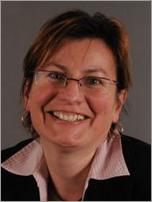
Maria Petrova, PhD, is Post-doctoral Research Fellow at the Center for International Environment and Resource Policy at Tufts University, and Associate at the Davis Center, Harvard University. Dr. Petrova received her Ph.D. in Environmental Science from Oregon State University in 2010. Her research in Oregon focused on public response to wave energy technology, an important form of renewable energy in the Northwest. Dr. Petrova brings to her public opinion research a background in public relations and marketing (MA, BA degrees). She also does comparative research on renewable energy policies in the US and the EU. She won first place at the International Conference on Ocean Energy (ICOE) in Spain in 2010.
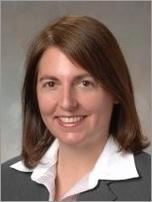
Prof. Kalyani Robbins, JD, LLM, is on the faculty of the University of Akron School of Law, where she teaches Environmental Law, Natural Resources Law, and Criminal Law, as well as various related seminars. She has focused much of her research on wildlife law (biodiversity and ecosystem management) and the intersection of law, science, and the environment. She has a series of law review articles addressing endangered species policy issues from an interdisciplinary perspective, and has turned her focus to ecological problems developing as a result of global climate change, including those relating to renewable energy development. Prof. Robbins serves in leadership roles within both the American Bar Association and the Association of American Law Schools and has published two books this year: "The Laws of Nature: Reflections on the Evolution of Ecosystem Management Law and Policy" (University of Akron Press, 2013); and (with John Copeland Nagle and J.B. Ruhl) "The Law of Biodiversity and Ecosystem Management" (Foundation Press University Casebook Series, Third Edition, 2013).
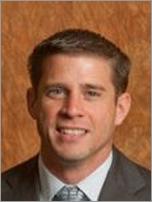
Troy Rule, JD, is an Associate Professor at the University of Missouri School of Law, where he teaches Property, Secured Transactions, Real Estate Transactions, Natural Resources, Land Use Controls, and Sales & Leases. He graduated with honors from the University of Chicago Law School in 2005, where he served on the Chicago Journal of International Law and was a John M. Olin Student Fellow in Law & Economics. Prior to entering law teaching, Prof. Rule was an Attorney at K&L Gates LLP in Seattle, where his practice focused primarily on commercial real estate transactions and wind energy development. His research on property law issues associated with renewable energy has been published in such journals as the UCLA Law Review, Washington University Law Review, and University of Illinois Law Review.
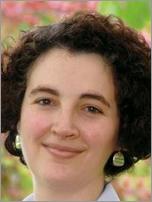
Prof. Erin Ryan, JD, teaches Natural Resources Law, Water Law, Property, and Negotiation at Lewis & Clark Law School in Portland, Oregon. She taught at the College of William & Mary from 2004-2011 and spent 2011-12 in China as a Fulbright Scholar and visiting Professor of Law at the Ocean University of China. She has presented at academic and administrative venues in the United States, Europe, and Asia and is the author of many scholarly works, including "Federalism and the Tug of War Within" (Oxford, 2012). Ryan is a graduate of Harvard Law School, where she was an Editor of the Harvard Law Review and a Hewlett Fellow at the Harvard Negotiation Research Project. She clerked for Chief Judge James R. Browning of the U.S. Court of Appeals for the Ninth Circuit before practicing environmental, land use, and local government law in San Francisco. Prior to law school, she served as a U.S. Forest Service ranger on the Mono Lake District of the Inyo National Forest, east of Yosemite National Park. She graduated from Harvard College with a degree in East Asian Languages and Civilizations and received a master’s degree in Ethnomusicology from Wesleyan University.
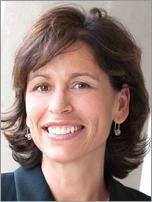
Prof. Maria Savasta-Kennedy, JD, teaches Environmental Law, and Environmental Law, Practice, and Policy as a Clinical Professor of Law at University of North Carolina School of Law in Chapel Hill. She also directs the Externship program. She began her teaching career at New York University School of Law's Lawyering Program. Before teaching, Prof. Savasta-Kennedy litigated federal and state environmental, civil rights and commercial cases. She represented grass roots organizations in complex environmental cases at both the trial and appellate level while an Associate Attorney with Earth Justice. While in private practice, Prof. Savasta-Kennedy helped found the American Bar Association PROBAR project, a program creating volunteer opportunities for private attorneys across the country interested in representing political asylum applicants.
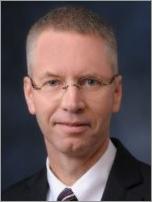
Matt Schuerger, MSEE, MBA, is an independent consultant working on power systems planning and analysis. He has worked extensively with the integration of large amounts of variable renewable energy including power system reliability, transmission planning, system operations, market rules, and distributed generation. Matt is a consultant to the Minnesota Department of Commerce Division of Energy Resources and to the Department of Energy's National Renewable Energy Laboratory. He has over 25 years of experience in the utility industry, including senior positions in engineering, power plant operations, and business development. Matt is a licensed Professional Engineer with a MS degree in Electrical Engineering (Power Systems) from the University of Minnesota, a BS degree in Mechanical Engineering from Purdue University, and an MBA from the University of St. Thomas.
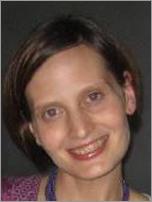
Prof. Rachael Shwom, PhD, works in the Human Ecology department at Rutgers University, where she specializes in climate and society. She earned her PhD in Sociology with a specialization in Environmental Science and Policy at Michigan State University in 2008. Her dissertation research focused on how different governmental, business, and environmental organizations sought to influence US policies on appliance energy efficiency over the past three decades. Prof. Shwom has also researched formation of public opinions on climate change, social science’s role in enabling decision-makers to act on climate change under uncertainty, interdisciplinary teaching on climate change, and the media’s coverage of climate change. In the future, she will continue her research on environmental and energy advocacy organizations and their tactical decision-making. She is also interested in the role that production decisions, such as those made by real estate developers and automobile manufacturers, play in changing energy consumption patterns.
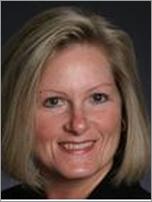
As Executive Director of Wind on the Wires (WOW), Beth Soholt, JD, brings more than 15 years experience working with the electric industry in various capacities. At WOW she directs work in the areas of technical/transmission planning, state regulatory proceedings, legislative education and outreach. She holds a seat on the Midwest Independent System Operator (MISO) Advisory Committee representing the Environmental Sector. She was also selected as one of three nongovernment representatives on the Stakeholder Steering Committee of the Eastern Interconnection Planning Collaborative.
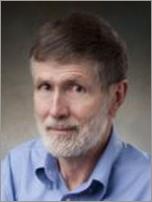
James C. Smith, JD, is the John Byrd Martin Chair of Law at the University of Georgia. He specializes in property, real estate transactions and commercial law. Smith's scholarship includes several books: "Property: Cases and Materials" (with professors Larson, Nagle and Kidwell, 3d ed. 2013), "Real Estate Transactions: Problems, Cases and Materials" (with Professor Malloy, 4th ed. 2013), "Federal Taxation of Real Estate" (with Professor Samansky, 2014) and "Neighboring Property Owners" (1988, with supplements 1990-2015). Smith serves in leadership positions in a number of professional organizations, including the American Bar Association, the Association of American Law Schools, the Association for Law, Property and Society (ALPS), and CALI. Smith also takes an active role in advising policymakers. He has testified before Congress on four occasions: twice regarding a proposed bill to exempt certain federal workers from state income tax and twice regarding state taxation of nonresidents' pension income. After receiving his law degree from the University of Texas, Smith served as a judicial clerk for Judge Walter R. Ely of the U.S. Court of Appeals for the 9th Circuit and practiced for four years as an associate with Baker Botts in Houston, Texas. Prior to coming to UGA, Smith was an assistant professor at the Ohio State University College of Law. He has also been a visiting professor at the University of Alabama, the University of Texas, Washington University School of Law, the University of Iowa, the University of Reading (England), the University of Regensburg (Germany) and the Instituto Tecnológico Autónomo de México (ITAM) in Mexico City.
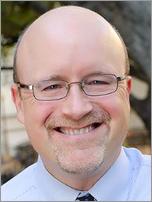
David Spence, JD, PhD, is Professor of Law, Politics & Regulation at the University of Texas at Austin, where he teaches in both the McCombs School of Business and the School of Law. Professor Spence is co-author of the leading energy law casebook, "Energy, Economics and the Environment" (Foundation Press), and has published numerous scholarly articles on subjects relating to energy policy, regulation and the regulatory process. Professor Spence’s research focuses on the law and politics of energy regulation, broadly defined. His scholarly writings address the environmental regulation of the oil and gas industry and the electric utility industry, as well as economic regulation (regulation of price and competition) in the public utility industry. He has PhD in political science from Duke University and a JD from the University of North Carolina.
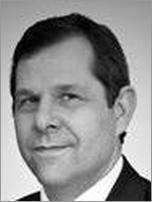
Prof. Endre Stavang, PhD, teaches at the University of Oslo and was Visiting Scholar in Residence (2012-13) at the University of Arizona James E. Rogers College of Law. He initiated the Research Group on Natural Resource Law in Oslo and leads its property team. Stavang was a Fulbright Research Scholar for one year at Yale Law School and has hands-on experience as an Appellate Court Judge and an in-house oil, gas, and energy lawyer. His scholarship concerns property theory, liability regimes, environmental law and law and economics. Publications include two monographs on nuisance (1999) and servitudes (2011), respectively, and two books on torts (collection of my own articles in this discipline, 2007) and economic analysis of law (text-book with Erling Eide, 2008).
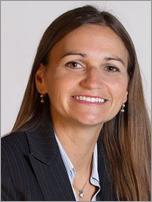
Prof. Amy L. Stein, JD, is an Associate Professor at Tulane University Law School. Before joining Tulane's faculty in 2010, she taught at The George Washington University as an Adjunct Professor in the Environmental Studies Program and as Visiting Associate Professor of Legal Research and Writing, Acting Associate Director of the Legal Research and Writing Program, and Co-Director of the Scholarly Writing Program at The George Washington University Law School. After her graduation from law school, Professor Stein spent a number of years as an Associate for Latham & Watkins LLP in Washington, D.C. and in the firm's Silicon Valley office. Prof. Stein practiced in Latham's environmental and litigation departments. She is a member of the District of Columbia, Illinois, and California state bars. She has published and given presentations on a variety of environmental and energy law topics, including recent publications in the University of Colorado Law Review, the Connecticut Law Review, and the Duke Environmental Law and Policy Forum.
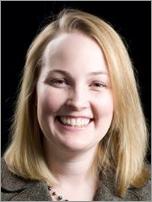
Prof. Lisa Grow Sun, JD, graduated from Harvard Law School in 1997, where she was the first woman to graduate first in her class, the first woman to graduate summa cum laude, and the first student to graduate summa cum laude in 15 years. After law school, she clerked for the Honorable J. Michael Luttig, United States Court of Appeals for the Fourth Circuit, and then for the Honorable Justice Anthony M. Kennedy, United States Supreme Court. Following her clerkships, Professor Sun was a Lecturer in Law at Stanford Law School and then a Visiting Professor in the Temple/Tsinghua University Masters in Law Program in Beijing. Professor Sun now teaches Disaster Law, Constitutional Law, and Torts at the J. Reuben Clark Law School, Brigham Young University. She is a coauthor of the definitive disaster law textbook, "Disaster Law and Policy," with Dan Farber, Jim Chen, and Rob Verchick.
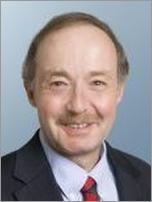
Jeffrey Thaler, JD, is the University of Maine’s first Visiting Professor of Energy Policy, Law & Ethics, and also serves as Assistant University Counsel for environmental, energy and sustainability projects and sustainability initiatives. Prof. Thaler graduated magna cum laude from Williams College and earned a law degree from Yale Law School. He clerked for Chief Justice Vincent McKusick and Senior Associate Justice Sidney Wernick of the Maine Supreme Judicial Court. Before joining the University, Prof. Thaler developed over several decades a wide-ranging legal practice focusing upon environmental and energy permitting, compliance, enforcement and litigation; as well as litigation for clients with commercial, medical and legal disputes, and insurance coverage, personal injury and toxic tort problems.
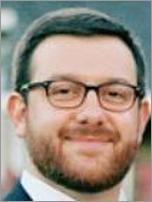
Henry Tranes is a third-year law student at the CUNY School of Law in New York and a research fellow at CUNY's Center for Urban Environmental Reform. Throughout law school he has held internships with the Northeast office of the environmental law firm Earthjustice, the New York State Department of Environmental Conservation’s Office of Environmental Justice, and the office of a New York State Senator. Before law school, Henry graduated with honors from SUNY Albany with a BA in Political Science. As a law student, he has focused on environmental law and developed a particular interest in environmental justice issues impacting communities throughout New York City. He will be presenting on a working paper, Sharing the Burdens of Pollution in New York: Whose Environment Are We Protecting, and Who Decides?
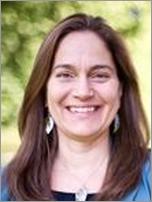
Prof. Katherine Trisolini, JD, teaches at Loyola Law School in Los Angeles. Her research and scholarship focus on regulatory responses to climate change. She teaches Environmental Law, Property, and Local Governments and the Environment. Prior to joining the Loyola faculty, Trisolini was an Environmental Law Fellow at UCLA School of Law from August 2007 to July 2009. At UCLA, in addition to conducting research on climate change policy, she taught Environmental Law, a seminar on Local Governments and the Environment, the Environmental Law Clinic, and seminars on the judicial process. Trisolini practiced environmental law as an Associate Attorney at Chatten-Brown & Carstens in Santa Monica from March 2004 to July 2007 and as a Fellow at Shute, Mihaly & Weinberger in San Francisco. She clerked for then Chief Judge Consuelo B. Marshall of United States District Court for the Central District of California and for the Honorable A. Wallace Tashima of the United States Court of Appeals for the Ninth Circuit.
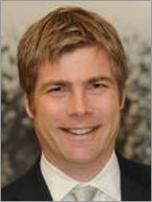
Michael Wara, JD, PhD, is Associate Professor of Law and Justin M. Roach, Jr. Faculty Scholar at Stanford University. Prof. Wara is also a Research Fellow at the Freeman Spogli Institute for International Studies and Faculty Fellow at the Steyer-Taylor Center for Energy Policy and Finance. He was formerly a geochemist and climate scientist and has published work on the history of the El Niño/La Niña system and its response to changing climates, especially those warmer than today. The results of his scientific research have been published in premier scientific journals, including Science and Nature.
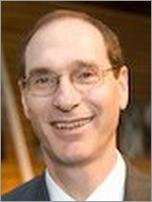
David Wippman, JD, is Dean of the Law School and William S. Pattee Professor of Law at the University of Minnesota. Prior to joining the U of M, he was a Professor and Associate Dean at Cornell Law School and served as Vice Provost for International Relations at Cornell University. In 1998–99, Dean Wippman had taken a year away from Cornell to serve as a director in the National Security Council’s Office of Multilateral and Humanitarian Affairs, where he worked on war crimes issues, the International Criminal Court, economic sanctions, and U.N. political issues. Before joining Cornell, he practiced law for nine years in Washington, D.C., with a focus on international arbitration, political consulting on public and private international law issues, and representation of developing countries in litigation. He has co-authored two recently released books on international law: "International Law, Norms, Actors, Process: A Problem-Oriented Approach" (3rd ed.) and "Can Might Make Rights? Building the Rule of Law After Military Interventions."
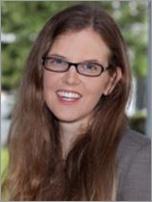
Prof. Hannah Wiseman, JD, teaches Energy Law, Environmental Law, and Land Use Regulation in the College of Law at Florida State University. Her research explores the role of regulation in protecting the character of living spaces and environmental quality, from the sublocal to the national level. As a law student, Professor Wiseman was a managing editor of the Yale Journal on Regulation and received the Israel H. Peres prize for the best student note or comment appearing in the Yale Law Journal in 2007. Prof. Wiseman clerked for the Honorable Patrick E. Higginbotham of the U.S. Court of Appeals for the Fifth Circuit.
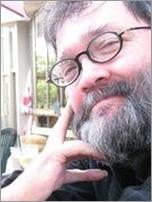
Gregor Wolbring, PhD, is an Associate Professor on the Faculty of Medicine at the University of Calgary and founder for the International Center for Bioethics, Culture and Disability. He is also a part-time Professor on the Faculty of Law at the University of Ottawa, Canada; Founding Member and Distinguished Scholar, Center for Nanotechnology in Society at Arizona State University; Adjunct Faculty in Critical Disability Studies at York University in Toronto; and Fellow of the Institute for Science, Policy and Society at the University of Ottawa. His research interests are manifold: ability and ableism; history of thalidomide and thalidomiders; disability studies; social, ethical, legal, economic, environmental, cultural and governance issues of new, emerging and converging sciences and technologies; cognitive sciences; neuromorphic engineering; genetics; synthetic biology; impact of science and technology on marginalized populations, especially disabled people; sports; human rights; models and determinants of health; global health; medical anthropology; foresight studies, climate, water and energy issues; history; bioethics' and biochemistry.
The Legal & Policy Pathways for Energy Innovation conference brought together leading scholars, practitioners, policymakers, and business people to address current energy law and policy challenges, particularly at the intersection of environmental law and policy. The panels focused on four primary topics:
- Clean energy infrastructure
- Environmental and energy governance
- Climate, energy, and environmental justice
- Sustainable regions and communities
Continuing Legal Education (CLE)
CLE has been approved for the conference with event number 179583.